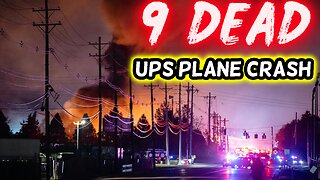Premium Only Content

#48 Call For Proposal
Call For Proposal typically involves several stages, from the initial announcement to the final selection of proposals. Here's a general outline of the process:
Announcement and Preparation:The organization or entity that is seeking proposals (such as a government agency, company, foundation, or academic institution) announces the call for proposals. This announcement includes details about the theme, objectives, eligibility criteria, submission guidelines, deadline, and any specific requirements.
Proposal Development:Interested individuals, organizations, or groups prepare and develop their proposals in accordance with the guidelines provided in the call. This involves creating a detailed proposal that outlines their approach, methodology, expected outcomes, timeline, budget, and any other required information.
Submission:Proposals are submitted by the specified deadline. This can involve submitting physical documents, uploading files through an online portal, or following any other method outlined in the call.
Initial Review:After the submission deadline, the organization typically conducts an initial review to ensure that all submitted proposals meet the eligibility criteria and follow the submission guidelines. Proposals that do not meet these requirements may be disqualified.
Evaluation and Selection:A review committee or panel evaluates the eligible proposals based on predetermined evaluation criteria. These criteria could include factors such as relevance to the theme, feasibility, innovation, potential impact, and the qualifications of the individuals or organizations involved. The committee scores and ranks the proposals.
Shortlisting or Finalists:Based on the evaluation, a shortlist of top proposals or finalists is created. These proposals are deemed to have the highest potential for success or alignment with the objectives of the call.
Further Evaluation (if necessary):In some cases, there might be a second round of evaluation, such as interviews or presentations by the shortlisted candidates, to gather more information and make a final decision.
Notification:All participants are notified of the outcome of the evaluation process. This includes both successful and unsuccessful proposals.
Negotiation and Contracting:If a proposal is selected, the organization might enter into negotiations with the proposer to finalize terms, budgets, and any other relevant details. This can lead to the creation of a contract or agreement that outlines the responsibilities of both parties.
Implementation:
Once contracts are signed and details are finalized, the selected proposals move into the implementation phase. This involves carrying out the activities outlined in the proposal, meeting milestones, and achieving the proposed outcomes.
Monitoring and Reporting:
The organization overseeing the call may require regular progress reports from the selected proposers to ensure that the project is on track and meeting its goals.
Completion and Evaluation:
After the project is completed, there is often an evaluation phase where the outcomes are assessed against the initial objectives. This can help inform future calls for proposals and improvements in the process.
Keep in mind that the specific steps and details of the process can vary widely depending on the nature of the call, the organization behind it, and the industry or sector involved.
www.antharas.co.uk/ companies website or top book distributors!
#BusinessStrategy
#Entrepreneurship
#Leadership
#Management
#Marketing
#Finance
#Startups
#Innovation
#Sales
#SmallBusiness
#CorporateCulture
#Productivity
#SelfDevelopment
#SuccessStories
#PersonalBranding
#Networking
#Negotiation
#BusinessEthics
#TimeManagement
#GrowthStrategies
#MarketAnalysis
#BusinessPlanning
#FinancialManagement
#HumanResources
#CustomerExperience
#DigitalTransformation
#Ecommerce
#SocialMediaMarketing
#BusinessCommunication
#ChangeManagement
-
 8:44
8:44
AV
1 year ago#1142 Press release - Guide to innovationin the NHS
12 -
 28:53
28:53
iCkEdMeL
15 hours ago $0.02 earnedBREAKING: 9 DEAD After UPS Plane BURSTS Into Fireball at Louisville Airport
21.6K7 -
 20:52
20:52
Professor Nez
18 hours agoThe TRUTH is Actually WORSE than we Thought...
9.26K18 -
 8:59
8:59
MattMorseTV
17 hours ago $0.05 earnedTrump’s DIRE WARNING to the Senate GOP.
72.7K81 -
 2:13:33
2:13:33
Side Scrollers Podcast
19 hours agoAsmongold SUED for Emotional Distress + Hasan REJECTED+ INSANE Plane Crash + More | Side Scrollers
87.4K24 -
 21:39
21:39
Nikko Ortiz
4 days agoI Take A North Korean Shooting
79.8K11 -
 23:01
23:01
GritsGG
17 hours agoWarzone Solo Dubular! Last Night Time Solo???
13.6K2 -
 22:47
22:47
The Pascal Show
15 hours ago $0.04 earnedTHEY’RE HIDING EVIDENCE?! Candace Owens EXPOSES Foreign Connection In Charlie Kirk Shooting
22.2K25 -
 LIVE
LIVE
Lofi Girl
3 years agolofi hip hop radio 📚 - beats to relax/study to
285 watching -

FreshandFit
15 hours agoLas Vegas Takeover!
197K18